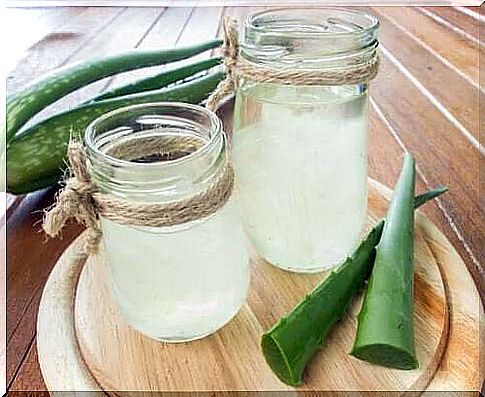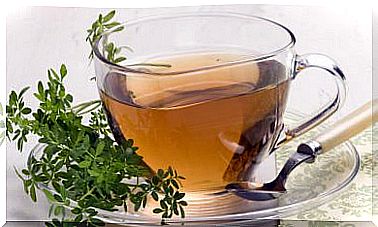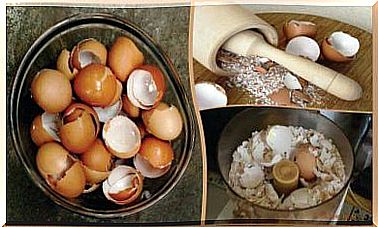All About Drinking Tea During Pregnancy

It is normal for women to drink tea during pregnancy, as it is important to drink well and try to relieve the discomforts characteristic of their condition. However, they should be aware of the potential negative side effects that some herbal teas can have on them.
People have been benefiting from medicinal plants in the form of herbal infusions and teas for centuries. However, many of the pregnant women who drink these concoctions are often unaware of the effect a particular plant could have on them. Some herbs are of little importance, but with certain plants they need to be careful.
Can you drink tea during pregnancy?
Drinking a cup of tea is not really harmful to a pregnant woman. It should be understood that drinking a cup of tea during pregnancy is usually not a problem. However, drinking tea made with specific medicinal plants a lot and often can pose a risk during pregnancy.
According to estimates from a study “Consumption of medicinal plants by pregnant women” (English link), it is estimated that up to 55% of pregnant women use medicinal plants to prepare tea or infusion. Most of them are not aware of the effects these plants can have.
What Happens During Pregnancy?

A woman’s body undergoes temporary changes during pregnancy due to the appearance of new organic structures, such as the placenta. Thus, any substance, both natural and synthetic, that could alter the physiological processes of this stage is strictly contraindicated.
It is important to mention that drinking tea is most relevant during the first trimester of pregnancy. This is because fetal development is most sensitive to the influence of environmental factors during this phase.
In this regard, drugs, chemicals, metabolites of medicinal plants make diseases can also affect the normal development of the fetus from the second week to the third month of pregnancy. This, together with the properties of the various active metabolites, can lead to the development of certain disorders.
Teratogenesis, cytotoxicity, genotoxicity and other terms refer to the harmful changes that the cells of embryos undergo during early formation. Pregnant women need to know which substances are most associated with these processes.
Just as alcohol and tobacco are chemicals that disrupt embryogenesis, medicinal plants can also negatively impact them. It is fundamental to take certain precautions when consuming herbal infusions.
Which teas can you drink during pregnancy?
Natural products often have broader therapeutic effects and fewer side effects than synthetic ones. Unfortunately, this fact has contributed to the perception that everything natural is always harmless. That is absolutely not the case.
However, there are many plants that can be used to make teas that do not negatively affect the health of the woman and the fetus when consumed during pregnancy. We list a number of teas that can be drunk during pregnancy:
- Peppermint. This plant is used to relieve colic and is especially helpful during pregnancy as it helps the breasts prepare to produce breast milk.
- lemon verbena. This plant can help relieve a burning sensation in the esophagus, as well as nausea, insomnia, colic and other digestive discomforts.
- ginger. This rhizome is great for relieving nausea and preventing vomiting.
- rosemary. This plant can help to relieve complaints such as sore throat, insomnia and stress.
- valerian. People have used this herbaceous plant as a relaxant for centuries.
- lemon balm. This plant can help with digestive problems and has a relaxing effect.
There are many other herbs that are safe during pregnancy, but the ones we just mentioned are the most commonly used. There are therefore no contraindications and tea from these plants can therefore be drunk with confidence during pregnancy – unless the doctor indicates otherwise.
Teas Not Recommended During Pregnancy

Just as some teas are safe to drink during pregnancy, there are plants that you should not consume during this stage. We list the most relevant types below:
- Chamomile and fig tea can cause contractions and dilate the cervix in high doses.
- Pennyroyal can cause contractions.
- Rue can also cause contractions and is associated with shrinking and swelling of the uterus. It was used as a means to induce an abortion, which is not without danger.
- Aloe vera can cause uterine bleeding, which is why many consider it an abortion-inducing agent.
- Wormwood absinthe can lead to spontaneous abortion by activating blood flow in the uterus.
- Boldo : One of the active ingredients of boldo is thujone and drinking this tea during pregnancy can lead to spontaneous abortion.
What should you remember about drinking tea during pregnancy?
Most people believe that medicinal plants are safe because people have been using them since ancient times and they are natural. Remember that “natural” doesn’t necessarily mean safe and healthy.
Women should consult their doctor before, during and after pregnancy and while breastfeeding about which types of tea they should and should not drink during pregnancy. Many of the effects of plants on pregnancy are still unknown, including the good ones. So always make sure you have the most recent information!









